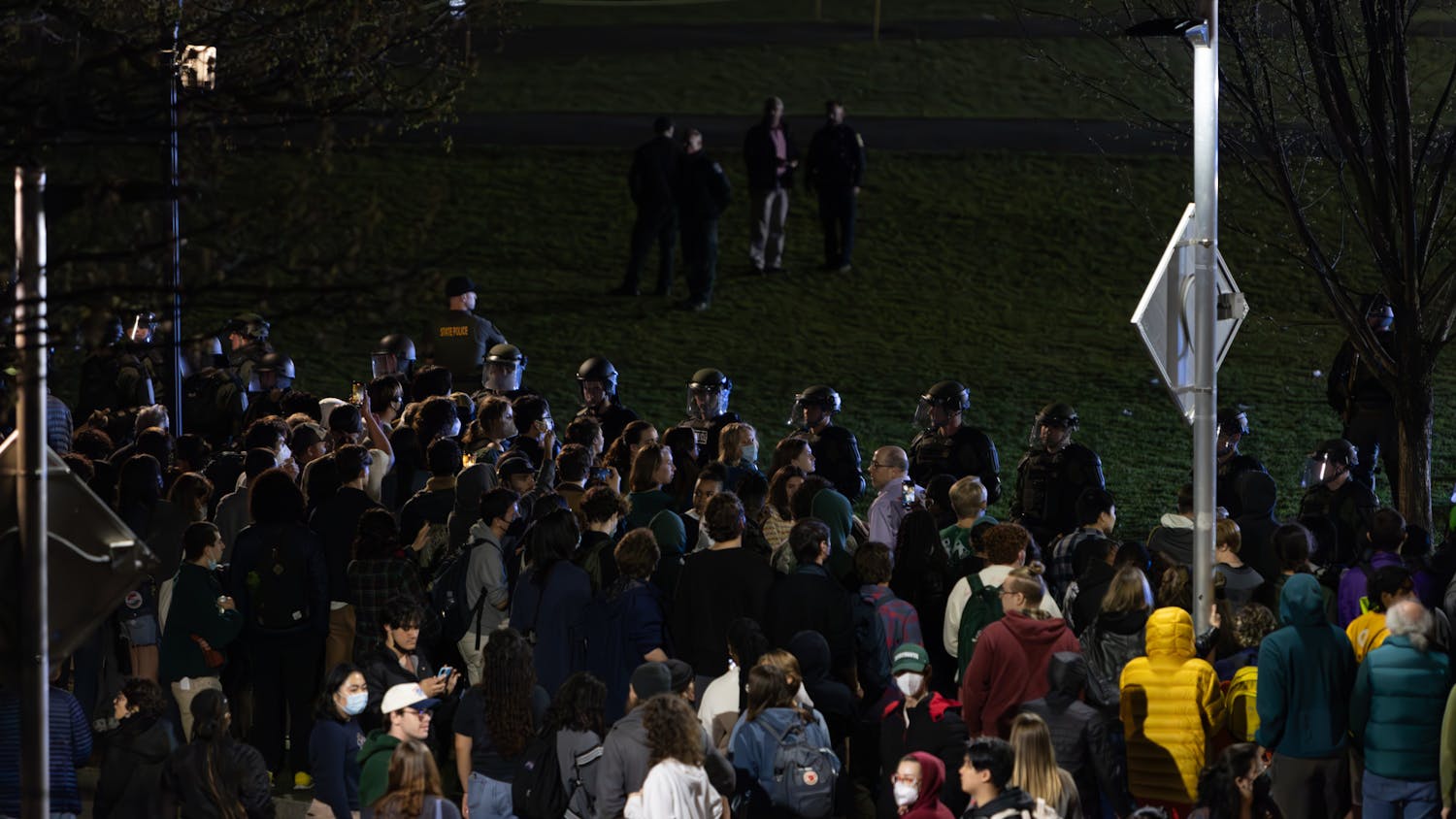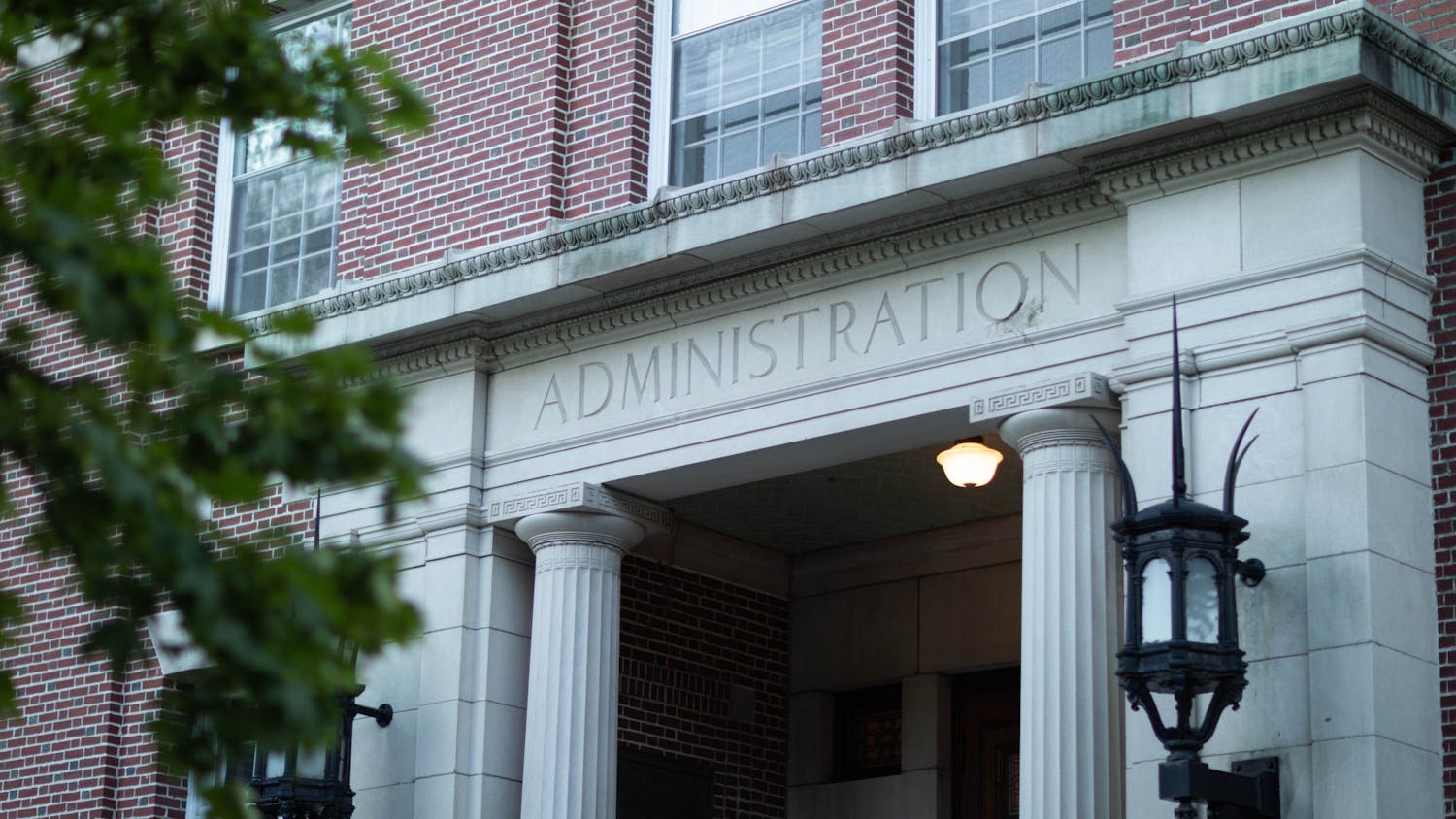Vice Presidential Candidates Dick Cheney and Joe Lieberman discussed matters of policy and leadership last night in a cordial and, at times, light-hearted debate.
Seated at a round table in front of moderator Bernard Shaw of CNN, the two candidates appeared relaxed and confident as they fielded often controversial questions. This was in marked contrast to Tuesday's presidential debate, in which the two candidates stood at lecterns, far from the moderator as well as from each other.
Both Lieberman and Cheney held steadfast to the promises they made at the beginning of the debate to refrain from personal attacks and instead, focused most of their remarks on issues of policy.
One of the very first issues raised was that of education. Echoing George W. Bush's statements in Tuesday's debate, Cheney stressed the importance of establishing high education standards and demanding accountability from all public schools.
Lieberman outlined several of Gore's proposals for education reform, including a plan to spend $170 billion of the projected federal budget surplus on the overall improvement of public schools and a program to add 100,000 new teachers to the public school system.
The discussion soon turned to the tax reduction plans of both candidates, with Lieberman arguing that Bush's proposals would mostly benefit the top one percent of Americans, while Gore's plan would give relief to hard-working middle class families.
Lieberman also contended that Bush's proposals would lead the country into debt.
"One of the most important things a federal government can do is to be fiscally responsible," he said.
Cheney countered that Bush's plan was more balanced than Gore's in that it would give tax cuts to everyone who pays taxes and that it would allow Americans greater choice in determining which way their money would be spent.
He also asserted that Gore's tax plan was too complex and that one would, "have to be a CPA to understand [it]."
While the two candidates agreed with the current administration's positions on the Balkan crisis, they differed greatly in their assessment of the country's military readiness.
Cheney, former secretary of defense under President George Bush, said that the U.S. military was, "overcommitted and underresourced."
Lieberman disagreed, contending that the U.S. military was the best trained and best equipped fighting force in the world and that military spending has actually increased during the Clinton administration.
The two candidates also had drastically different ideas about U.S. energy policy. Lieberman supported the current administration's decision to release oil from the national reserves and feels that advancements in technology will prevent future energy crises.
According to Cheney, the best course of action is to begin drilling in the Arctic Wildlife Reserve using responsible, ecologically-safe methods.
On the issue of Social Security, Cheney asserted that the current system is headed toward bankruptcy. The solution that he and Bush have proposed consists of investing part of the Social Security fund in the stock market.
Lieberman, in contrast, felt that Bush's plan was a risky one and that putting Social Security in a "lockbox" would be the best plan of action.
Despite the heavy focus on policy, there were some light moments during the debate.
After asserting that eight years under the Clinton administration has led the country "to do better" financially, Lieberman noted that according to newspapers, Cheney was doing rather well himself.
"And I can tell you, Joe, that the government had absolutely nothing to do with it," Cheney said in response.
In general, however, the two candidates refrained from personal references and were quite civil toward one another.
"I found myself wondering why these two gentlemen weren't running for President," said Assistant Government Professor Lynn Vavreck, who said she was impressed by both Cheney's and Lieberman's reasonable and articulate manners.
Assistant Government Professor Dean Spilliotes agreed that both candidates, "did a fine job," but found a negative aspect to the extremely cordial nature of the debate.
"It made it a lot harder to see distinctions between the two guys because the really didn't go after each other," he said, contending that as a result, the debate will serve only to solidify voters' prior political leanings.
The event -- the only one of its kind for vice-presidential candidates this year -- took place at Centre College in Danville, Kentucky.
The next Presidential debate will take place next Wednesday in Winston-Salem, North Carolina.



